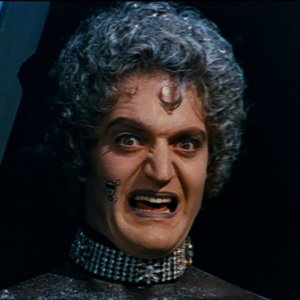Digi-Schlock: PHANTOM OF THE PARADISE (Scream Factory Blu-Ray/DVD Combo Pack)
Like many cult titles, Phantom Of The Paradise is one of those films that has historically inspired just enough love in the people who handle home video catalogs in the U.S. to get out there consistently, albeit with little fanfare. The old Key Video VHS was passable for the days of analog, full-frame transfers and it got a decent, extras-free release to DVD in 2001.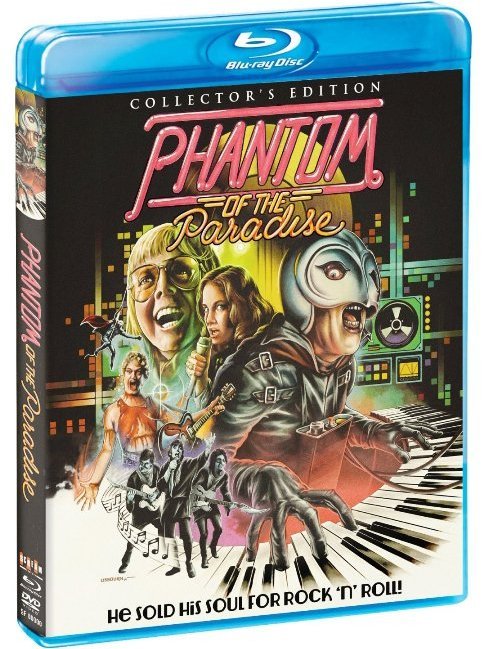 That said, this is a film with a fanatical following - check out the excellent Swan Archives website for proof - and it has always cried out for a special edition. Scream Factory has answered that call in the U.S. and the result is a blu-ray/DVD set that is packed to the gills with the kind of Phantom-mania that will make the film's fans smile.Though this is the film's high-def debut in the U.S., it is actually had more than a few releases in Europe and Australia. There is no information for who did the transfer but it looks reminiscent of the remaster done for Arrow Films in the U.K., sporting a detailed image with often intense colors and a look that is slightly darker in tone than the bright French blu-ray transfer. Either way, it's a big step up from the DVD edition and is complemented nicely by 5.1 stereo mix, presented in lossless DTS form on the blu-ray. It delivers the film's complex mix in a suitably punchy style, with the frequent songs really spreading out nicely across the speakers.
That said, this is a film with a fanatical following - check out the excellent Swan Archives website for proof - and it has always cried out for a special edition. Scream Factory has answered that call in the U.S. and the result is a blu-ray/DVD set that is packed to the gills with the kind of Phantom-mania that will make the film's fans smile.Though this is the film's high-def debut in the U.S., it is actually had more than a few releases in Europe and Australia. There is no information for who did the transfer but it looks reminiscent of the remaster done for Arrow Films in the U.K., sporting a detailed image with often intense colors and a look that is slightly darker in tone than the bright French blu-ray transfer. Either way, it's a big step up from the DVD edition and is complemented nicely by 5.1 stereo mix, presented in lossless DTS form on the blu-ray. It delivers the film's complex mix in a suitably punchy style, with the frequent songs really spreading out nicely across the speakers. However, where this set truly excels is in the extras department. Scream Factory, in collaboration with the Swan Archives, has put together an awe-inspiring assemblage of bonus features that mix choice extras from the French and U.K. releases with a variety of new items produced especially for this set. In fact, there's so much bonus material on this set that the blu-ray and DVD feature entirely different sets of extras, thus making it the rare combo pack where you actually need to watch both discs to see everything the set has to offer.
However, where this set truly excels is in the extras department. Scream Factory, in collaboration with the Swan Archives, has put together an awe-inspiring assemblage of bonus features that mix choice extras from the French and U.K. releases with a variety of new items produced especially for this set. In fact, there's so much bonus material on this set that the blu-ray and DVD feature entirely different sets of extras, thus making it the rare combo pack where you actually need to watch both discs to see everything the set has to offer.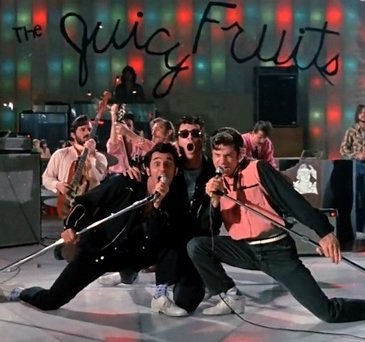 The glam-rock ball gets rolling on the blu-ray with a pair of commentaries. The first is a star-studded affair that features stars Jessica Harper, Gerrit Graham, Archie Hahn, Jeffrey Comanor and Peter Elbling (a.k.a. Harold Oblong). Thankfully, this is not one of those raucous group commentaries where everyone struggles to get their voices heards: instead, it was recorded in three different sessions - one for Graham, and one for Hahn/Comanor/Elbling - and artfully edited together into a scene-specific composite in the same style you hear on the special releases for James Bond films.Everyone involved in this track appreciate the film's devoted following and each shares plentiful stories about the production from their perspectives. Hahn, Comanor and Elbling reveal how they designed their own choreography with little input from Brian DePalma, Harper discusses how co-star William Finley was a generous acting mentor and Graham talks about how he was pranked by a crew that at first mistakenly believed him to be a diva.
The glam-rock ball gets rolling on the blu-ray with a pair of commentaries. The first is a star-studded affair that features stars Jessica Harper, Gerrit Graham, Archie Hahn, Jeffrey Comanor and Peter Elbling (a.k.a. Harold Oblong). Thankfully, this is not one of those raucous group commentaries where everyone struggles to get their voices heards: instead, it was recorded in three different sessions - one for Graham, and one for Hahn/Comanor/Elbling - and artfully edited together into a scene-specific composite in the same style you hear on the special releases for James Bond films.Everyone involved in this track appreciate the film's devoted following and each shares plentiful stories about the production from their perspectives. Hahn, Comanor and Elbling reveal how they designed their own choreography with little input from Brian DePalma, Harper discusses how co-star William Finley was a generous acting mentor and Graham talks about how he was pranked by a crew that at first mistakenly believed him to be a diva.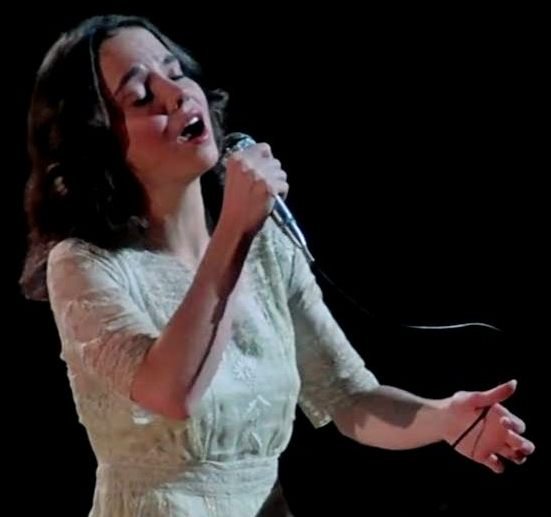 The second commentary is a solo track that features production designer Jack Fisk. It's rare to hear a P.D. get their own track but Fisk was crucial to developing the film's visual style so it's interesting to hear him describe his process and methods. He gives tons of great info on how sets were built and locations were dressed, right down to the specific materials used to achieve different effects. He also tells a funny tale about the first time he realized DePalma liked his work and even tells a story about when his wife, Sissy Spacek, won the lead role in Carrie (she was a set decorator on Phantom!).The next extras on the blu-ray are a trio of interview featurettes. The first offers a 35-minute chat with DePalma, who discusses the tortured genesis of the script, reflects on his working relationships with different cast and crew members and reveals what motivated visual choices for particular musical numbers. In an interesting moment, he reveals how much his early experimental film Dionysus In '69 influenced the staging of the finale, right down to the use of actors from the stage show recorded in that film.
The second commentary is a solo track that features production designer Jack Fisk. It's rare to hear a P.D. get their own track but Fisk was crucial to developing the film's visual style so it's interesting to hear him describe his process and methods. He gives tons of great info on how sets were built and locations were dressed, right down to the specific materials used to achieve different effects. He also tells a funny tale about the first time he realized DePalma liked his work and even tells a story about when his wife, Sissy Spacek, won the lead role in Carrie (she was a set decorator on Phantom!).The next extras on the blu-ray are a trio of interview featurettes. The first offers a 35-minute chat with DePalma, who discusses the tortured genesis of the script, reflects on his working relationships with different cast and crew members and reveals what motivated visual choices for particular musical numbers. In an interesting moment, he reveals how much his early experimental film Dionysus In '69 influenced the staging of the finale, right down to the use of actors from the stage show recorded in that film.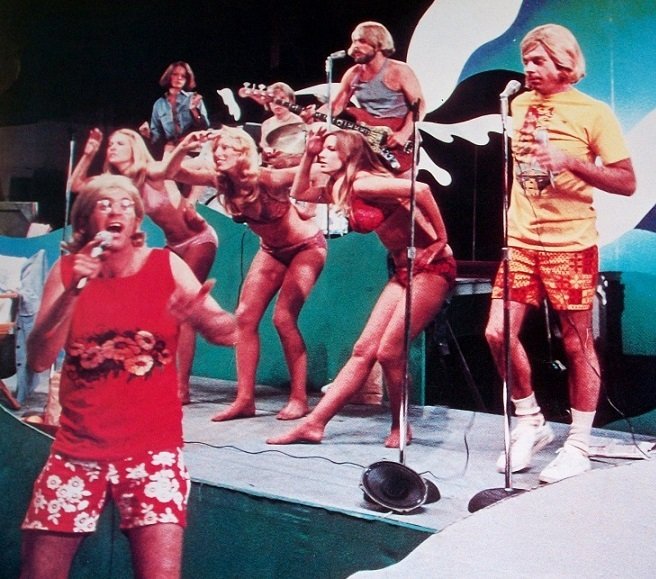 The next interview features Paul Williams, who covers a lot of territory in 35 minutes. He talks about his oft-punishing dual workload of acting and songwriting in detail, revealing how he crafted songs to fit the storyline and how dealt with the challenge of writing pastiche numbers without letting them get too knowingly campy. In a touching moment, he reveals how his mother's terminal illness influenced the mindset he expresses in the lyrics of "Old Souls."The last interview is a quick but informative 4-minute chat with Tom Burman, who quickly runs through the design of the helmet as well as the scar makeup and dentures he did for Winslow. He also reveals why John Chambers got credit for the makeup on the film despite doing no work on it.
The next interview features Paul Williams, who covers a lot of territory in 35 minutes. He talks about his oft-punishing dual workload of acting and songwriting in detail, revealing how he crafted songs to fit the storyline and how dealt with the challenge of writing pastiche numbers without letting them get too knowingly campy. In a touching moment, he reveals how his mother's terminal illness influenced the mindset he expresses in the lyrics of "Old Souls."The last interview is a quick but informative 4-minute chat with Tom Burman, who quickly runs through the design of the helmet as well as the scar makeup and dentures he did for Winslow. He also reveals why John Chambers got credit for the makeup on the film despite doing no work on it.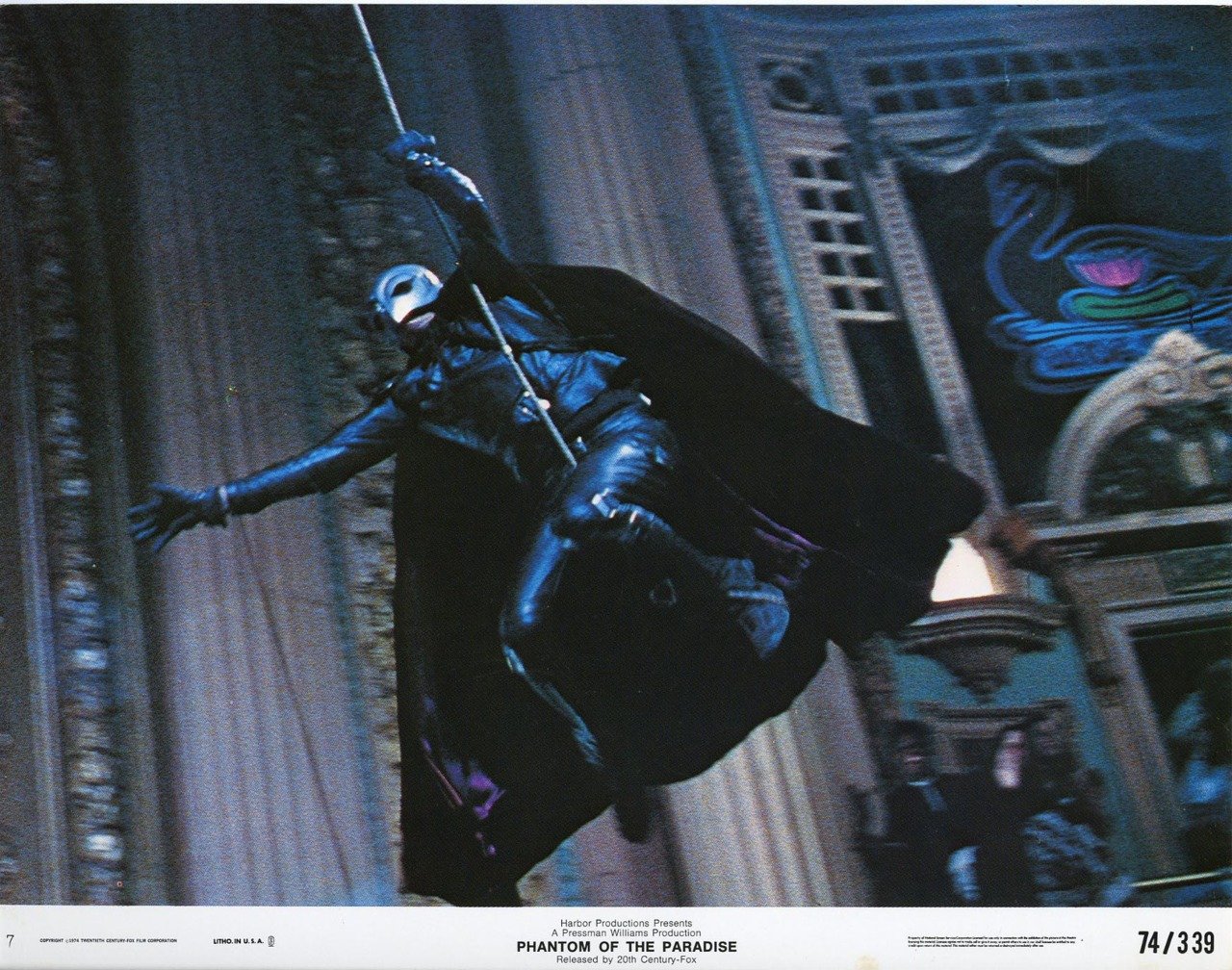 There is also plentiful outtake footage on the blu-ray. Over 26 minutes worth of alternate footage allows the viewer to see a series of alternate takes for several different sequences, as well as additional angles (these are really interesting when they show additional footage from the musical numbers). Along similar lines is 7 minutes' worth of footage showing how the filmmakers had to alter or remove several "Swan Song" logos in the film after Led Zeppelin's management threatened a lawsuit! A still gallery with just over 60 images rounds out the blu-ray, offering posters, lobby cards and easy-to-read reproductions of material from the film's program and pressbook.The bonus material presented on the DVD isn't minor stuff when compared to the blu-ray's extras. It begins with "Paradise Regained," an excellent 50-minute oral history of the film originally done from the film's French DVD and blu-ray releases. DePalma appears here with virtually every major cast and crew member as they lay out the film's convoluted path to the silver screen in a clear, engaging manner.
There is also plentiful outtake footage on the blu-ray. Over 26 minutes worth of alternate footage allows the viewer to see a series of alternate takes for several different sequences, as well as additional angles (these are really interesting when they show additional footage from the musical numbers). Along similar lines is 7 minutes' worth of footage showing how the filmmakers had to alter or remove several "Swan Song" logos in the film after Led Zeppelin's management threatened a lawsuit! A still gallery with just over 60 images rounds out the blu-ray, offering posters, lobby cards and easy-to-read reproductions of material from the film's program and pressbook.The bonus material presented on the DVD isn't minor stuff when compared to the blu-ray's extras. It begins with "Paradise Regained," an excellent 50-minute oral history of the film originally done from the film's French DVD and blu-ray releases. DePalma appears here with virtually every major cast and crew member as they lay out the film's convoluted path to the silver screen in a clear, engaging manner.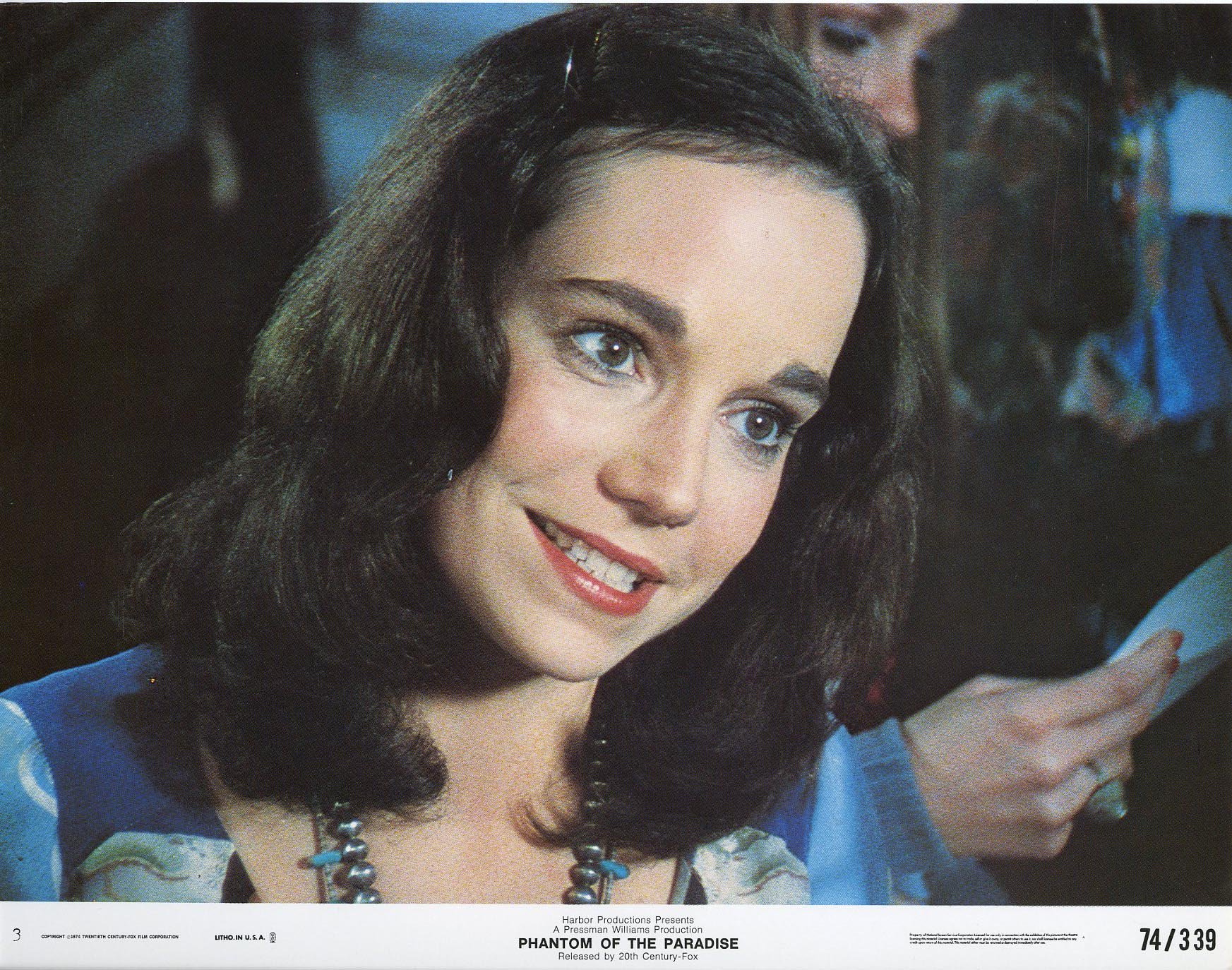 There's lot of interesting material here: the musical-chairs nature of the film's early casting choices, a brilliant editing trick that editor Paul Hirsch used to create Beef's electrocution sequence and the most complete account of the four lawsuits that dogged the film before it was released. It's particularly great to see the sadly departed William Finley talking about his role here: he is witty as he reveals the rigors of working with the mask and how he really almost got his head crushed in that record press(!).Another Paul Williams interview follows - and not only is it epic in scope (72 mins.), it also features him in conversation with director and lifelong Williams fan Guillermo Del Toro. The first half features William speaking frankly about the health problems that dogged his youth as well as the drug and alcohol problems that almost derailed his career.
There's lot of interesting material here: the musical-chairs nature of the film's early casting choices, a brilliant editing trick that editor Paul Hirsch used to create Beef's electrocution sequence and the most complete account of the four lawsuits that dogged the film before it was released. It's particularly great to see the sadly departed William Finley talking about his role here: he is witty as he reveals the rigors of working with the mask and how he really almost got his head crushed in that record press(!).Another Paul Williams interview follows - and not only is it epic in scope (72 mins.), it also features him in conversation with director and lifelong Williams fan Guillermo Del Toro. The first half features William speaking frankly about the health problems that dogged his youth as well as the drug and alcohol problems that almost derailed his career.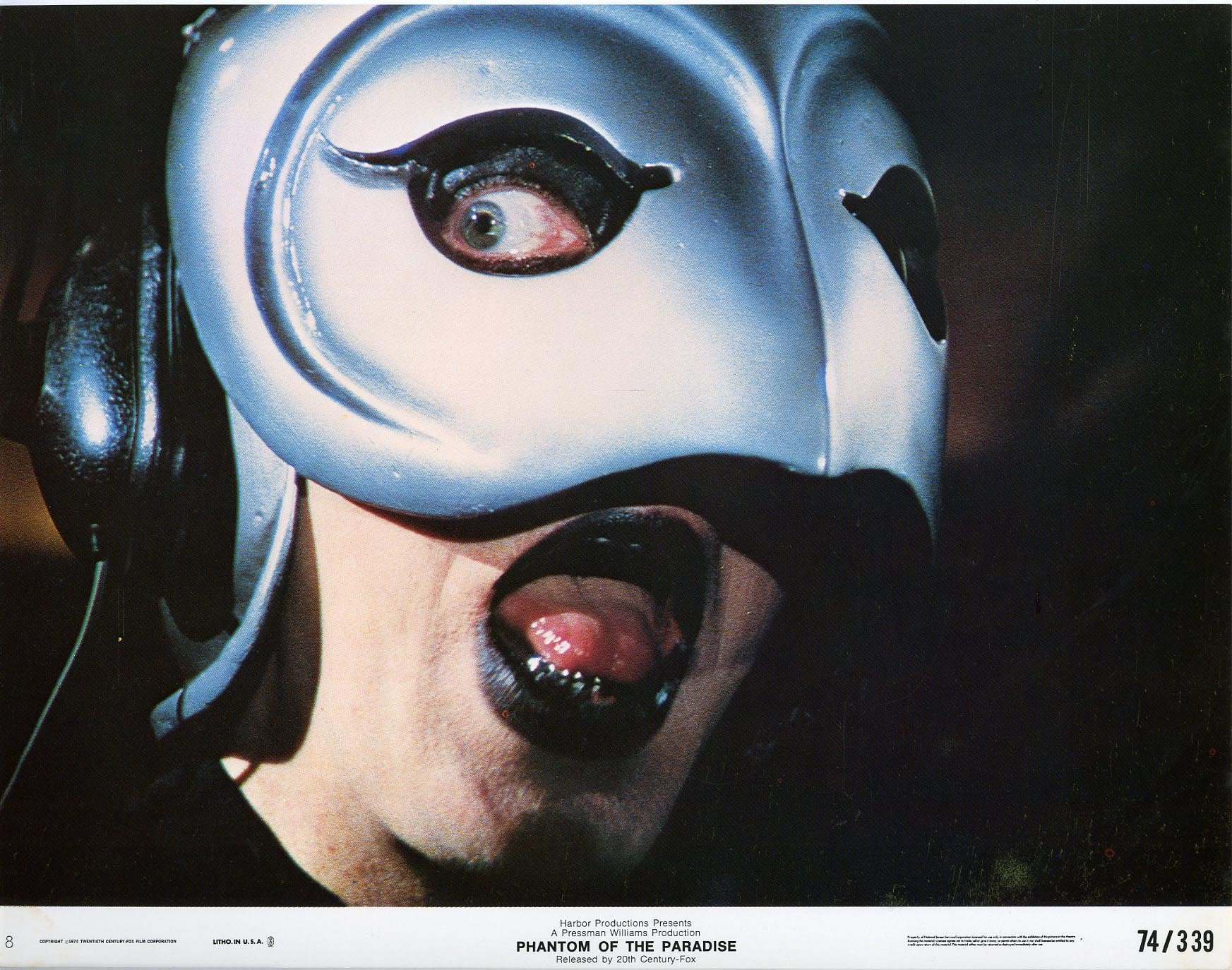 The second half features Del Toro artfully prompting Williams through a discussion of his songwriting process as well as offering his own analysis of the gothic touches that distinguish Phantom. It's more like a chat between peers than a conventional interview and it offers plenty to interest fans of both men over its lengthy sprawl.A series of shorter interviews follow. The first is a ten minute, single-angle camcorder chat with Rosanna Norton from 2004. The now-famous costume designer talks about the challenges of doing her work with little money and how she combined influences as diverse as drag queen couture and Brazil's Carnival into her designs for the film.The next is a nearly 20 minute chat with producer Edward Pressman, who reveals the tricky financing tangle involved in getting Phantom off the ground, including some villainous moves from A.I.P., and the insurance and lawsuit problems. He also reveals how he designed a successful
The second half features Del Toro artfully prompting Williams through a discussion of his songwriting process as well as offering his own analysis of the gothic touches that distinguish Phantom. It's more like a chat between peers than a conventional interview and it offers plenty to interest fans of both men over its lengthy sprawl.A series of shorter interviews follow. The first is a ten minute, single-angle camcorder chat with Rosanna Norton from 2004. The now-famous costume designer talks about the challenges of doing her work with little money and how she combined influences as diverse as drag queen couture and Brazil's Carnival into her designs for the film.The next is a nearly 20 minute chat with producer Edward Pressman, who reveals the tricky financing tangle involved in getting Phantom off the ground, including some villainous moves from A.I.P., and the insurance and lawsuit problems. He also reveals how he designed a successful  reissue ad campaign for the film after the initial release faltered at the box office.The musicians are represented by a 17-minute chat with drummer Gary Mallaber. He talks about how he developed his working relationship with Williams and then goes on to cover the specifics of how the music was recorded as well as a few mentions of working on the set in the musical numbers. The last and perhaps most unique interview offers almost 12 minutes with Andrea Alvin, the widow and partner of John Alvin, who designed the film's striking neon-tinged poster art. She offers a detailed breakdown of how his airbrush-driven style was achieved and offers a nice appreciation of his oft-unsung talents in general.The next two pieces serve up promotion in satirical ways. The first is a recording, accompanied with still images, of Gerrit Graham reading the biography and synopsis he penned for the film's presskit. Though he is self-deprecating about his efforts, his style is pretty witty in an in-your-face way that suits the film. "Finley and Toy" is a fun bit from the film's French edition that has the film's star doing a 30-second faux ad for a then-new Phantom action figure.The remainder of the DVD's extras cover the film's promotional details in great detail (this is where the partnership with the Swan Archives comes in handy). There are two and a half minutes worth of radio ads, most of them voiced by Wolfman Jack and prominently featuring song clips, plus one h
reissue ad campaign for the film after the initial release faltered at the box office.The musicians are represented by a 17-minute chat with drummer Gary Mallaber. He talks about how he developed his working relationship with Williams and then goes on to cover the specifics of how the music was recorded as well as a few mentions of working on the set in the musical numbers. The last and perhaps most unique interview offers almost 12 minutes with Andrea Alvin, the widow and partner of John Alvin, who designed the film's striking neon-tinged poster art. She offers a detailed breakdown of how his airbrush-driven style was achieved and offers a nice appreciation of his oft-unsung talents in general.The next two pieces serve up promotion in satirical ways. The first is a recording, accompanied with still images, of Gerrit Graham reading the biography and synopsis he penned for the film's presskit. Though he is self-deprecating about his efforts, his style is pretty witty in an in-your-face way that suits the film. "Finley and Toy" is a fun bit from the film's French edition that has the film's star doing a 30-second faux ad for a then-new Phantom action figure.The remainder of the DVD's extras cover the film's promotional details in great detail (this is where the partnership with the Swan Archives comes in handy). There are two and a half minutes worth of radio ads, most of them voiced by Wolfman Jack and prominently featuring song clips, plus one h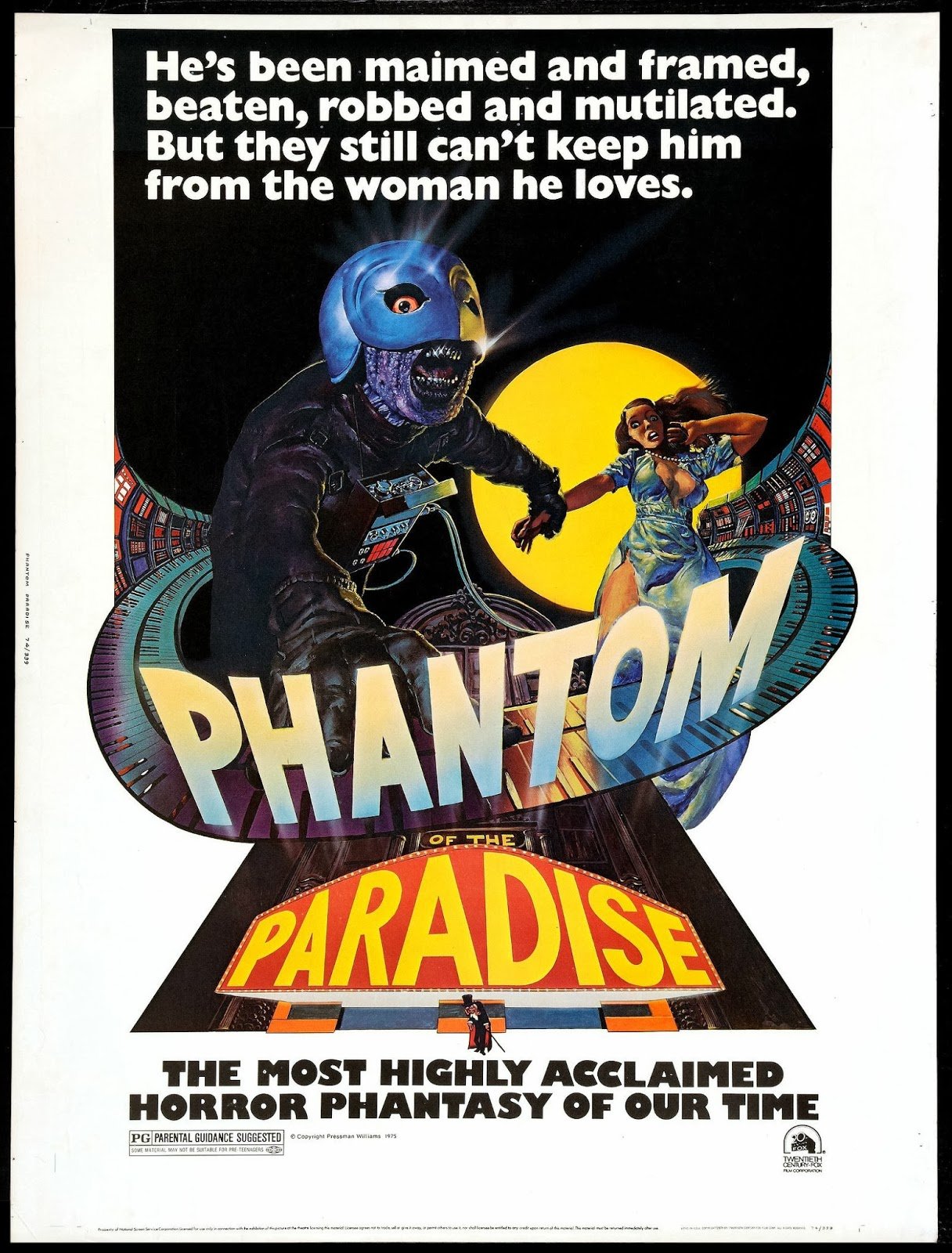 orror-themed spot from the Pressman-conceived campaign. The t.v. spots are divided evenly between the Fox and Pressman campaigns, with the former trying to mix horror imagery with an appeal to the rock crowd while the latter goes exclusively for selling the title character as a new horror icon.The theatrical trailers are interesting: the first seems more like a promo reel than a trailer (it doesn't even feature titles) while the latter is the best example of Fox's horror/rock crowd crossover campaign, with some great fast-cut editing. The last inclusion is an image gallery that includes 30 color stills as well as a series of lobby cards, posters from different companies and pictures from a screening.All in all, this is the special edition American Phantom fans have been waiting for. Not only does boast a more impressive transfer than past U.S. editions, it offers over nine hours of extras that represent every key participant and take the viewer deep into the heart of Phantom-mania. If you love this film, you need this set.To read Schlockmania's film review of Phantom Of The Paradise, click here.
orror-themed spot from the Pressman-conceived campaign. The t.v. spots are divided evenly between the Fox and Pressman campaigns, with the former trying to mix horror imagery with an appeal to the rock crowd while the latter goes exclusively for selling the title character as a new horror icon.The theatrical trailers are interesting: the first seems more like a promo reel than a trailer (it doesn't even feature titles) while the latter is the best example of Fox's horror/rock crowd crossover campaign, with some great fast-cut editing. The last inclusion is an image gallery that includes 30 color stills as well as a series of lobby cards, posters from different companies and pictures from a screening.All in all, this is the special edition American Phantom fans have been waiting for. Not only does boast a more impressive transfer than past U.S. editions, it offers over nine hours of extras that represent every key participant and take the viewer deep into the heart of Phantom-mania. If you love this film, you need this set.To read Schlockmania's film review of Phantom Of The Paradise, click here.


